For several years I’ve been looking for a French work from or about the Versailles Century (1682-1789) to translate, preferably one that has never been translated into English before. It also needs to be in the public domain. It’s been a slow search because every time I found an interesting property it turned out to have been done already or under copyright. I’m pleased to say that the search is now over.
Beginning this week, I will be serializing for you, dear readers, a French novel about the 18th century that has never before been published in English: Madame de Boigne’s La Maréchale d’Aubemer (The Widow of Field Marshal d’Aubemer). It’s original subtitle is right up our alley, so to speak: Nouvelle du XVIIIème (A Novella of the 18th Century).
Now, who is this Mme de Boigne, you may wonder? Though she lived most of her life in the 19th century, Éléonore-Adèle d’Osmond, Comtesse de Boigne, has unassailable Versailles Century credentials: she was born at the Château de Versailles in 1781. Her parents, the Marquis and Marquise d’Osmond, were courtiers. Her half-Irish mother had the more prestigious position: she was a lady-in-waiting to Mme Adélaïde, one of Louis XVI’s aunts. Little Éléonore-Adèle was chosen to be one of the playmates of Louis XVI and Marie-Antoinette’s eldest son, Louis-Joseph, the first dauphin, who died a month before the fall of the Bastille. After the Revolution broke out, the Osmond family fled to England.
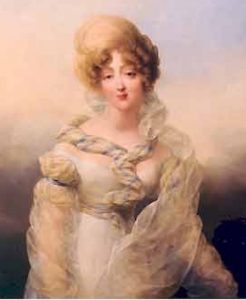
Mme de Boigne in her youth. Credit: Wikipedia.
It was there, in 1797, living in greatly reduced circumstances, that the family met the Savoyard military adventurer Benoît de Boigne, who had made his fortune warring in India and recently returned to Europe. The same age as Éléonore-Adèle’s father, he nonetheless asked for her hand. At a stroke, the family’s finances were restored. The couple never had children and effectively separated in 1804, he to go live on his estates in Savoy, and she in Paris.
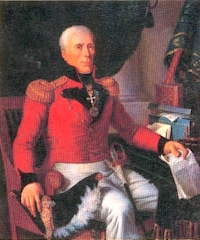
Benoît de Boigne. Credit: Wikipedia.
A close confidante of King Louis-Philippe’s consort Marie-Amélie, Mme de Boigne’s heyday was during the July Monarchy (1830-1848). She hosted a smart salon and was acquainted with everyone who was anyone. Her salon was famously mixed, the sort of place princes rubbed shoulders with politicians, artists, diplomats, and academics. Occasionally, she visited her husband in Savoy, but she is known to have had numerous ‘attachments’ in Paris. She remained in the capital after Louis-Philippe’s fall, dying immensely old and immensely rich in 1866.
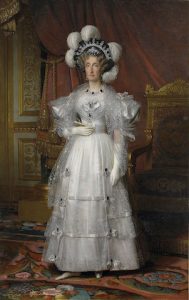
Marie-Amélie de Bourbon-Siciles, Queen of the French. Credit: Wikipedia.
Her memoirs were published in 1907. They were highly praised and are still in print in France. Proust was an avid reader of them and is thought to have based the character of Mme de Villeparisis in Remembrance of Things Past on Mme de Boigne. She also wrote 2 novels that were published posthumously.
La Maréchale d’Aubemer was composed at an unknown date, but was published the year after her death, in 1867. It was recently re-issued in France with a new introduction and notes by a French scholar. I’m very pleased to bring it to the attention of the English-language readership for the first time. The next post will be Chapter 1 in full!








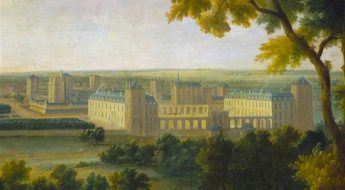
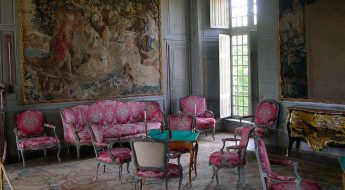








Leave a Comment